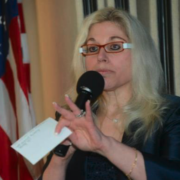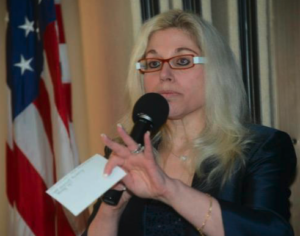Guest blog: Kids and car safety
 By Sydney Greenberger, NCL Summer Intern
By Sydney Greenberger, NCL Summer Intern
On June 20, the first day of Summer 2024, 1,086 baby onesies were placed in a display across from the U.S. Department of Transportation headquarters in Washington, DC, representing the number of young lives lost to hot cars since 1990 in the United States. Kids and Car Safety predicts that over 7,500 more children have survived being left in hot cars, with various injuries. Already in 2024, three young children have lost their lives; the situation is exacerbated because the National Highway Traffic Safety Administration (NHTSA) has failed to issue a regulation requiring technology to be placed in new cars to stop hot car deaths despite a mandate from Congress to do so.
In 2022, Congress directed the NHSTA to issue a federal safety standard requiring new vehicles to be equipped with technology to prevent hot car deaths by November 2023. The NHTSA has delayed action until November 2024. The technology is there, and it isn’t expensive, but the NHTSA has priorities other than protecting the lives of innocent children and companion animals at risk of being forgotten in hot cars this summer.
A common misconception among parents in the U.S. is ‘this would never happen to my family; how could you ever leave your child in a car?’ However, history proves that these tragedies can happen to anyone. More than half of these accidents occur because a parent unknowingly left their child in their vehicle. It happens to parents who are absent-minded. But it also happens to the most attentive parents. Parents who are well-educated and well-off. Over the past decade, it has happened to a dentist, a social worker, a police officer, a nurse, an assistant principal, a pediatrician, and many more. Preventable hot car tragedies can happen to anyone.
On average, 38 American children die yearly from these tragedies. 88% of these victims are under three years of age. 43% of children who were unknowingly left in cars were supposed to be dropped off at their daycare. Rear-facing car seats look the same to parents whether there is a child in them or not, and if a child is asleep, it can be easy to forget they are there.
Once a child has been left in a hot vehicle, saving them from these preventable tragedies is a race against the clock. A child’s body temperature rises 3-5 times faster than an adult’s. Cracking the windows and parking in the shade do little to slow the heating process or decrease the maximum temperatures in a vehicle, and temperatures in cars rise fastest within the first 10 minutes of being parked. Hot car deaths have occurred on sunny days with temperatures as low as 60 degrees. Heatstroke starts when the body reaches a core temperature of 104 degrees, and death can occur at just 107 degrees. By the time parents realize what has happened, it is almost always too late.
Technology could have prevented most of these accidents from occurring. Most car manufacturers support rear-seat reminder systems, which are audio and visual systems that remind drivers to check the backseat after shutting off the engine and exiting the vehicle. The hot car provision passed by Congress calls for these audio and visual reminders, but advocates believe that occupant detection systems are needed to prevent hot car deaths and injuries. Occupant detection systems use motion, radar, lidar, and carbon dioxide to detect a living being inside a vehicle. These systems can distinguish between living things and inanimate objects in the back seat. The system cannot be overridden or disabled, and minimizes false alarms.
Rather than require occupant detection and alert technology that costs less than $20 per vehicle, the NHTSA has decided that a “Stop. Look. Lock.” campaign is more effective than inexpensive life-saving technology.
Until the NHTSA passes these required regulations to ensure child safety in hot cars this summer, it’s up to parents to ensure the safety of their children and pets. If you see a child left unattended in a vehicle, immediately call 911. Teach children that vehicles are not a play area, and store car keys out of reach. Have a plan that your childcare provider will call you if your child fails to show up for school. Create a “look before leaving” routine whenever you get out of the car. Many parents leave their briefcase or ID badge in the back seat, so they must check before going into the office. Others always keep a large stuffed animal in the car seat. If their child is in the car, the stuffed animal moves to the front seat, reminding parents that the child is in the back.
The most effective way to prevent hot car deaths of children and pets is through the life-saving technology that the NHTSA has failed to regulate and require. The NHTSA has left it solely to parents to ensure child and animal car safety. We should all be calling our members of Congress and urging government officials to prioritize and regulate the safety of children and pets.
Sources
Safety recommendations from noheatstroke.org
Kids and Car Safety Occupant Detection vs. End of Trip Reminder
Advocates for Highway and Auto Safety
###



 By Sally Greenberg, Chief Executive Officer, NCL
By Sally Greenberg, Chief Executive Officer, NCL

 By Robin Strongin, Senior Director of Health Policy
By Robin Strongin, Senior Director of Health Policy













